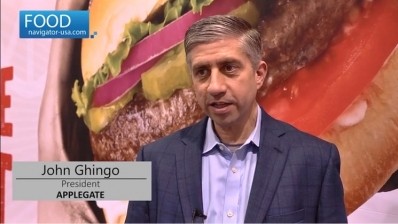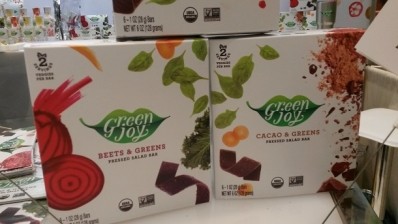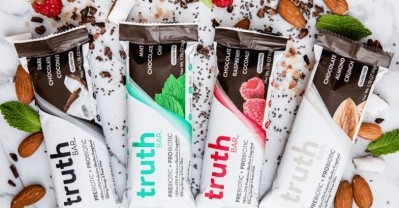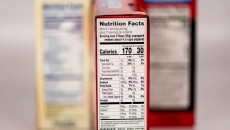Expo West 2018
Applegate teams with Whole30 to expand the reach of its humanely-raised, clean-ingredient products
However, earning the certification isn’t easy.
“We have probably on average 90% rejection rate for Whole30 Approved,” Whole30 co-founder Melissa Hartwig told FoodNavigator-USA at Natural Products Expo West earlier this month.
She explained that earning the Whole30 Approved certification requires more than offering clean ingredients.
“Obviously, the baseline is your having to be compliance with the Whole 30 program,” which functions as a 30-day dietary reset designed to help people improve their health, dietary habits and overall relationship with food, she said.
But in addition, she noted firms that want to become Whole30 Approved need to be “partners in the truest sense of the word. Are you committed to supporting our community the way we are to supporting yours? Does your mission and vision align with ours at Whole30? Are you engaged with your community? Are you supportive and are you willing to partner with us on things like giveaways and charitable events?”
For Applegate, the answers to all of these questions was yes.
“We have been looking at Whole30 for many years … and back in December we announced our partnership. And so we have had just phenomenal success in doing this,” Nicole Glenn, vice president of marketing for Applegate, said.
“It’s a really great partnership. It is great to have shared values just from humanely raised to clean ingredients and really being able to offer that to our consumers and especially from Applegate on a convenient side of things – really to make Whole30 so much more accessible,” she added.
On the sales side, the partnership has been a boon for Applegate, too.
“Melissa is a huge brand ambassador for the program and went out and announced our partnership and immediately you have got a welcoming community within Whole30,” Glenn said.
A concrete example of the partnership’s impact on Applegate sales was the company earning one of its highest weekly sales of Whole Foods on hot dogs in the first week of January, just after the announcement about the partnership.
“You don’t really think of hot dogs being part of that New Year’s food revolution. But we saw this phenomenal success and I am convinced it was Whole30ers trying our hotdogs for breakfast, Glenn said.
In exchange, Applegate has been an “amazing partner” for Whole30, Hartwig said.
“Obviously we love their squeaky clean ingredients, their transparent labeling, their commitment to animal welfare – that is kind of an obvious choice for Whole30. But they have been a true partner with giveaways and sponsored content and collaborative resources that support the Whole30 community,” Hartwig explained.
She added that ultimately, “what Applegate is doing is making Whole30 easier and more accessible for my Whole30ers and that is such a win.”


















